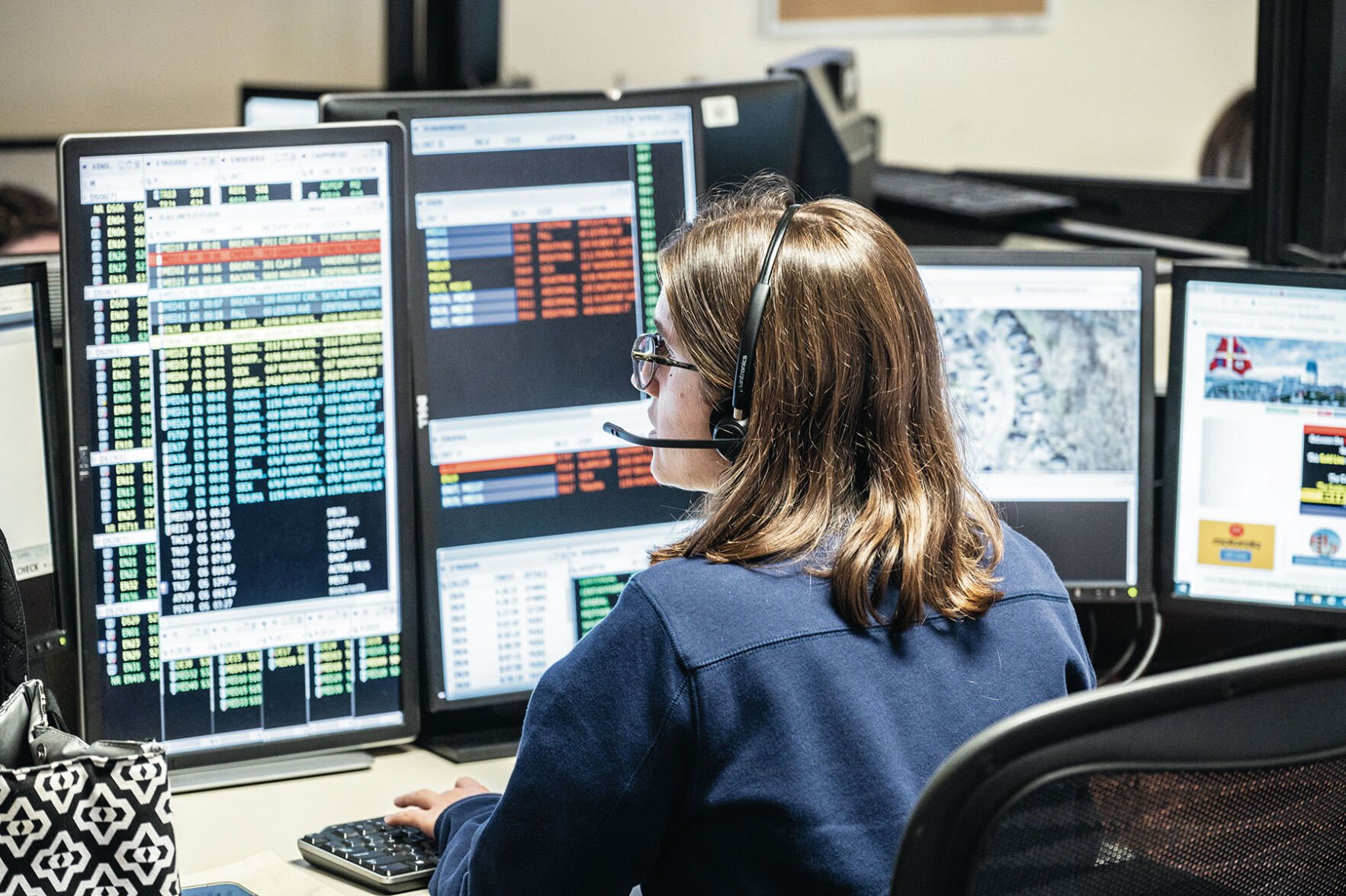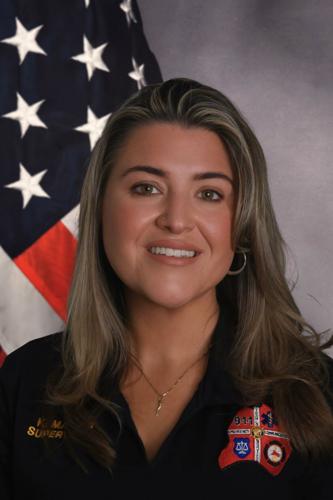A little girl dangling from a kite string in the sky in the first episode of ABC’s 9-1-1: Nashville is as about as far-fetched as a show ostensibly about first responders can get. But the way the show's 911 dispatcher Cammie Raleigh — played by Kimberly Williams-Paisley — handles the emergency is closer to reality.
Metro Nashville Department of Emergency Communications has the capability to send a caller a link to have access to their phone camera, just like Raleigh does in the episode. Dispatchers have used this technology recently to find a particular corner of a park, supervise CPR techniques and track when paramedics arrive and tag in. Kim Manier, operations supervisor at Metro Nashville Department of Emergency Communications, tells the Scene that the department has had the capability for about a year.

911 dispatcher Kim Manier
“We haven't used it as much as we probably could have,” Manier says. “It's something that we're really getting more and more comfortable with. I think now that we're starting to see more call takers utilize that technology, it'll kind of spread through the center. There's a time and a place for it.”
Williams-Paisley’s screen setup was within bounds too. It’s standard for Manier’s team to work off of six screens at once. Williams-Paisley reached out to shadow the real-life Nashville 911 team. (Williams-Paisley and her husband, country star Brad Paisley, run a food insecurity nonprofit in Nashville called The Store.)
“We were absolutely open to it, and we spent the day with her, and we wanted her to see a real, authentic, raw day in the life of a 911 dispatcher in Nashville,” says James Matthews, public information officer for the Metro Department of Emergency Communications, adding that he feels Williams-Paisley represents the profession well.
Williams-Paisley’s character technically combines two positions — a call answerer and a dispatcher. Department of Emergency Communications personnel are cross-trained, and often spend half the day in each position. The two roles work together on a typical call.
Once the call taker has collected the basic information — including an address and the nature of the emergency — they’ll transfer to dispatch, which arranges what particular emergency responder will be sent to the site. The call taker can stay on the line to give instructions for CPR or other interventions.
Another network TV show crafts a fantasy city out of Nashville stereotypes
It was surreal for Manier to see her profession on prime time, she says. She has enjoyed shows that feature other first responders, like ER and Cops, but had yet to see screen time for a dispatcher like herself. She also feels represented in the community the show portrays between police, fire, EMS and 911 operators. Manier even has a friend in the firehouse, just like the fictional Raleigh.
“We have those relationships,” Manier says. “It's not just dispatchers and police and fire who are just friends with their own team of peers. We all get to know each other, and we all have bonds.”
While the emergencies are sensationalized, she says the show captures the unexpected nature of the job. With 20 years in the field, she worked 12-hour days for 14 days straight during Nashville's historic 2010 flood, and also fielded calls related to tornadoes and the 2020 Christmas Day bombing.
“Every time we think that we've seen it all, something else gets thrown at us,” Manier says. “So I've seen a lot in my career, for sure.”
Matthews adds, “Obviously this is a Hollywood-type production, but in 911 you never know what you’re going to get.”
The real Nashville 911 team has worked closely with the show's production team so they can avoid dispatching emergency responders to a Hollywood-produced emergency. They’ve worked together to get the message out to the public that, for example, there is supposed to be a travel trailer hanging off the Korean Veterans Bridge.
Manier hopes the show will encourage more people to join the profession. The work-life balance is very difficult, she says, but it’s meaningful work that she feels is worthwhile.
“There is a shortage of 911 dispatchers across the country,” Manier says. “When you talk to other agencies, that's something that we all have in common for the most part. Although Nashville is relatively well-staffed, that is not the norm across the nation. So I hope it does draw more people to the profession and gets eyes on it.”







